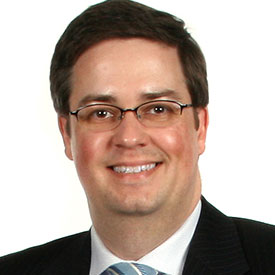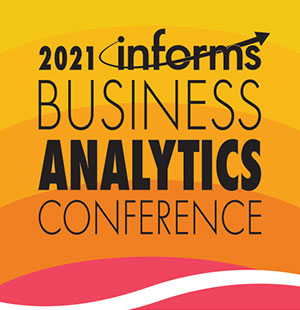Professional
Track: Analytics in the Public Sector
Estimating Future Electric Vehicle Charging Demand Using Bayesian Networks
Tuesday, April 13, 4:30-5:10pm EDT
Motivation The American transportation sector depends almost exclusively on fossil fuels, and fossil fuels also provide roughly half of the electricity generating capacity in this country. On the other hand, many policymakers call for a massive reduction of fossil fuel use by mid-century or even sooner. In this context, adopting Electric Vehicles is deemed essential. For example, California plans to prohibit the sale of passenger vehicles with traditional internal combustion engines by 2035. While the Electric Vehicles on the road today create a negligible load on the national power grid, the power demand from an all-electric fleet would potentially exceed the country’s entire generating capacity. Concerns about EV-induced blackouts may seem far-fetched for now, but lawmakers in Europe are already taking action to limit the power draw from charging EV batteries. For instance, in Germany, the Federal Ministry for Economic Affairs and Energy has proposed a new law allowing utilities to cap the power supply to in-home EV chargers.
Objective We intend to estimate the hour-by-hour electricity demand from a hypothetical fleet of all-electric passenger vehicles in the state of California. We wish to identify potential peak demands and construct charging scenarios for minimizing risks to the power grid stability.
Challenges & Assumptions Given that Electric Vehicles account for less than 1% of all passenger vehicles on U.S. roads, we will not attempt to project the current usage and charging patterns of this small group to the other 99% of a future all-electric fleet. However, we believe that it is justified to assume that individuals’ overall transportation requirements and travel patterns will remain similar to today. Hence, the travel behavior observed today will serve as a baseline for our model.
Data The 2017 National Household Transportation Survey provides a comprehensive dataset consisting of nearly one million individual trip segments using all transportation modes. It includes a wide range of variables at the trip-level, such as travel time, vehicle type, distance, trip purpose, etc. We focus on the subset of data specific to travel by vehicle. We can derive from the trip-level observations when a vehicle was in motion versus stationary and estimate the amount of energy consumed for each trip segment. The knowledge of a vehicle’s stationary state is fundamental as it defines the time window for battery charging.
Methodology From the available data, we machine-learn a high-dimensional Bayesian network that captures the joint probability distribution of month, day of the week, time of day, vehicle type, distance traveled, energy used, available charging time, charging power, etc. While we cannot know when an EV driver would charge his vehicle, we can simulate a wide range of charging patterns and compute the electric grid’s corresponding load. The key innovation of this approach is that we can represent the temporal dynamics of the problem domain in a contemporaneous Bayesian network model. With this Bayesian network, we can infer the daily distribution of electricity demand in a single computation instead of having to simulate the temporal evolution of all variables across individual time-slices. As a result, we can quickly assess scenarios consisting of different vehicle types, charging power, and charging patterns, including modified travel behavior to identify peak loads that might pose a risk to the electricity grid.

Stefan Conrady
Stefan Conrady
Managing Partner of Bayesia USA and Bayesia Singapore
Stefan Conrady has over 20 years of experience in analytics, marketing, and strategic planning with leading automotive brands, such as Mercedes-Benz, BMW, and Rolls-Royce Motor Cars. Stefan is a native of Ulm, Germany, but his career has spanned the globe, having lived and worked in the US, Europe, and Asia. In his most recent corporate assignment, he was heading the Analytics & Forecasting group at Nissan North America. Today, in his role as Managing Partner of Bayesia USA and Bayesia Singapore, he is recognized as a thought leader in applying Artificial Intelligence for research, analytics, and reasoning. Stefan’s tutorials, seminars, and lectures on Bayesian Networks are widely followed by scientists who embrace AI innovations to accelerate applied research. In this context, Stefan has recently co-authored a book with Lionel Jouffe, Bayesian Networks & BayesiaLab — A Practical Introduction for Researchers.

